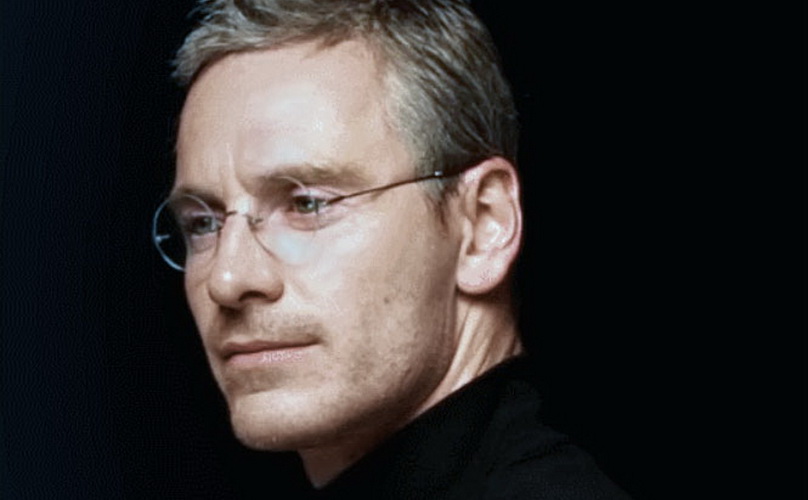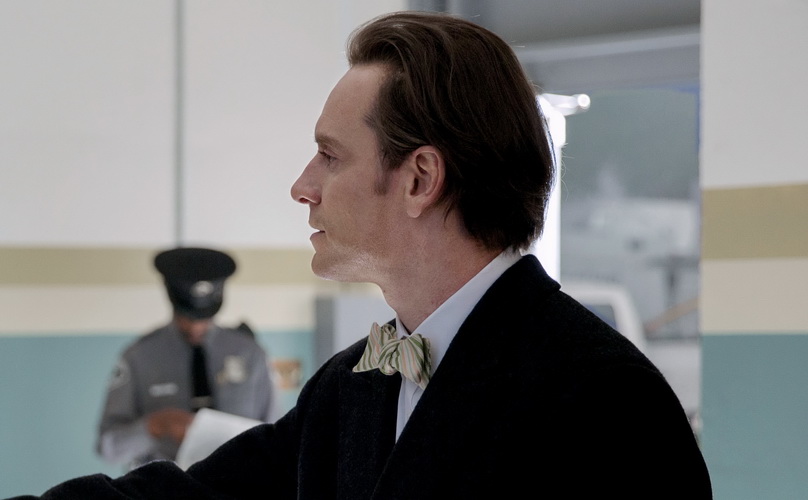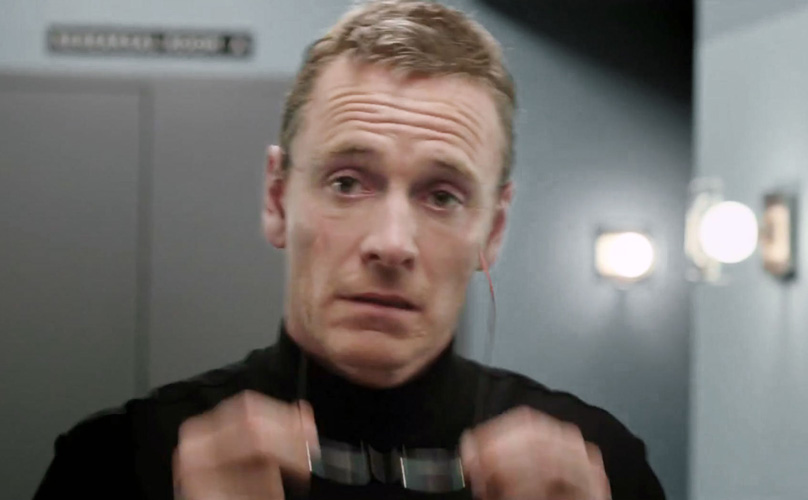
|

|

|

|

|

|

|

|

|

|

|

|


The Aaron Sorkin-scripted drama features a first-rate performance by Michael Fassbender in the title role, but he's not the only talent on display.
Apple founder Steve Jobs' legacy has been such an object of fascination over the decades that any attempt to stuff his career into feature-length format is asking for trouble. To their credit, with "Steve Jobs," director Danny Boyle and screenwriter Aaron Sorkin don't even try. Instead, this storytelling power duo, who share a penchant for fast-paced developments and vibrant characters, stick Jobs in a room and explore his jittery personality from every angle.
A kind of "Birdman" for the tech sector, "Steve Jobs" follows its subject around backstage environments in the frenetic moments leading up to a series of highly publicized presentations. While at times too over-the-top and operatic for its own good, those same flawed ingredients echo the rough edges that define the movie's iconic subject.
Rejecting his daughter and alienating his staff, the Jobs of "Steve Jobs" rarely comes across as likable, but he never seems dishonest about his ruthless temperament. "We don't have to be polite or realistic," says Jobs (Michael Fassbender) in an early scene, parading around with his frantic marketing director Joanna Hoffman (Kate Winslet) prior to a 1984 speech.
It's here that we find Jobs preparing to unveil the first Macintosh computer, weeks after the famed advertisement that positioned the personal computer as the antidote to an Orwellian future. Intent on making the computer speak during his talk, Jobs ignores the insistence of his technical director Andy Hertzfeld (Michael Stuhlbarg) that the computer has crashed, and forces the blustering underling to find a last-minute solution. Far from a technical mastermind, Jobs comes across as a master of getting others to do what he wants.
That showdown marks the first of several whirlwind exchanges that form the crux of the movie's three key sequences. Following the 1984 chapter, "Steve Jobs" shifts to two more high-speed sequences set at crucial moments in Jobs' career: his 1988 launching of the NeXTcube, an ill-advised project Jobs assembled after Apple's board booted him from the company, and his triumphant 1998 return when he shepherded along the first edition of the iMac.
Throughout these chapters, "Steve Jobs" zips along at an exciting clip. Alwin H. Kuchler's roaming camerawork melds nicely with Daniel Pemberton's elaborate score, but Fassbender's vivacious performance provides a critical anchor. Each time around, similar faces come and go, from Jobs' estranged daughter Lisa (for whom he named his first computer model, or maybe it was the other way around) and his struggling ex-girlfriend (a shrill but believable Katherine Waterson) to Jobs' on-and-off pal Steve "Woz" Wozniak (Seth Rogen, perfectly cast), who continually demands Jobs give more credit to the early Apple team in his presentations. As former Apple CEO John Sculley, Jeff Daniels repeatedly surfaces to review the character's own role in Jobs' increasingly monolithic career.
With the exception of Daniels, who does his best in the limited role of a gruff businessman ("the man who fired Steve Jobs," in Sculley's own words), the cast vanishes into their parts. Buried under makeup and a distinctive Polish accent, Winslet's chameleonesque transformation is bested only by Fassbender, whose vivid expressions and constant movement turn him into a physical marvel. As Woz, Rogen could have easily devolved into the archetype of a bearded sidekick; instead, he's a profoundly empathetic character passionate about cracking Jobs' cold exterior.
The biggest transformation in "Jobs," however, involves its director. Boyle, who took on the project following David Fincher's departure, drops his usual whirlwind editing style and instead develops an engrossing chamber piece. It's the rare Boyle production that doesn't so much burrow inside its character's mind as it explores the chaos he conjures up around him. Still, as Boyle and Sorkin both treasure the value of forward momentum, the pace of "Steve Jobs" is its true star. While the story covers 14 years, it never takes a breather.

But "Steve Jobs" barrels forward with intent rather than the pressure to cover every bullet point those familiar with Apple history might expect to find. Anyone seeking a comprehensive overview of Jobs' explosive career must look elsewhere (more specifically, Alex Gibney's sprawling documentary "Steve Jobs: The Man in the Machine"; forget about the ill-advised 2013 Ashton Kutcher vehicle "jOBS").
While Sorkin draws from Walter Isaacson's 2011 biography, which tracks Jobs from his tragic childhood to his final days, the movie concludes nearly a decade before the iPhone age. It includes none of the lawsuits surrounding his dubious involvement in backdating stock options and colluding with other corporations about their hiring prices. There's never any mention of the cancer that he spend months hiding from investors. That's the Steve Jobs saga; Boyle and Sorkin only want the person.
Instead, "Steve Jobs" provides a methodical overview of the innovator's claustrophobic state, dropping tidbits about his troubled psychology along the way. He's so preoccupied with work that he seems physically trapped by it: always on the verge of the next big thing, never absorbing a victory, and incapable of comprehending life beyond his immediate obsessions.
But it keeps barging in anyway. It's here that "Steve Jobs" excels: In conflicting dialogue with his former love and the child to whom he initially denies support — most effectively portrayed at age 19 by newcomer Perla Haney-Jardine — Jobs finds he can't outmaneuver the people who know him best. That's especially true for his frustrated offspring, seemingly the only person able to confront Jobs without any kind of baggage he can use against her. Meanwhile, visits from Sculley and Woz yield snippets of their own rocky history with Jobs, with jagged flashbacks that mark the only moments when the movie ventures beyond indoor arenas.
These scenes, while snazzily woven into the story, nevertheless suffer from the feeling of piling on to an already busy set of events and simply echoing events already described. Of course, Sorkin screenplays rarely go hand in hand with nuance, a tendency that reaches maddening extremes in "Steve Jobs."
For similar reasons, the movie displays the limits of Sorkin's rapid-fire dialogue as much as its virtues. There's plenty of amusing banter (to Woz's insistence that "computers aren't paintings," Jobs routinely offers a resounding "fuck you"). But constant overstatement distracts from the speedy drama at hand ("God sent his only son on a suicide mission, but we like him anyway because he made trees," Jobs exclaims at one point, and you can practically hear Sorkin chuckling at his cleverness in the background). Worse, the movie includes the occasional winking hint at Apple's future, including one unnecessary moment when Jobs boasts of plans to "put music in your pocket."

Yet structurally, Sorkin has delivered a masterwork of narrative economy. Never once showing Jobs actually delivering his speeches, "Steve Jobs" instead demystifies those famed performances to find Jobs in his natural state — that is, keen on manipulating everyone around him, and furious when the pieces don't fit. The only reality he knows involves his domination.
In an opening segment, Boyle shows us a newsreel clip of Arthur C. Clarke discussing a primordial computer and envisioning a future where one can find "all the information you need in a compact form." Though it carries several connotations, the prologue sets the stage for the way Jobs capitalized on futuristic ideals to obtain his own goals, a strategy that came at the expense of getting along with others.
That's why, whenever a few characters do manage to break through his mental armor — with the abrupt hug from his daughter, for example, or the unexpectedly warmhearted remark from Woz — "Steve Jobs" finds a satisfying emotional beat. With the closing shot, Boyle shifts focus from Jobs to one of the people most affected by his legacy, shrewdly suggesting that the man who thought he could master the world instead created one beyond his control.
